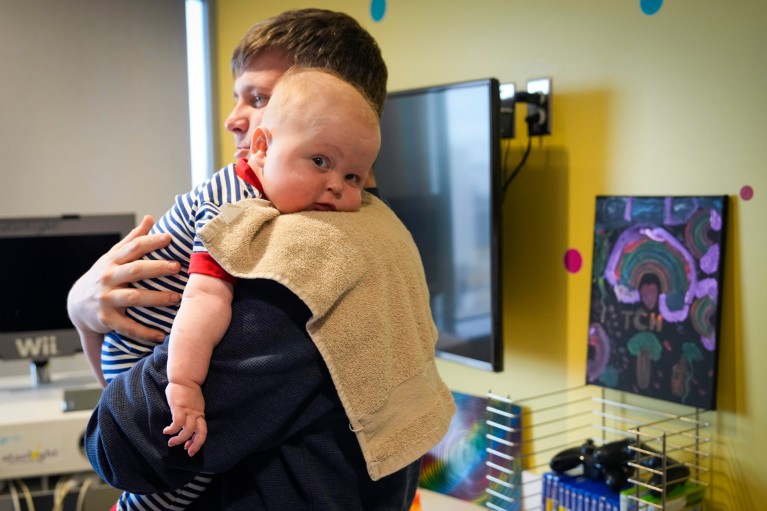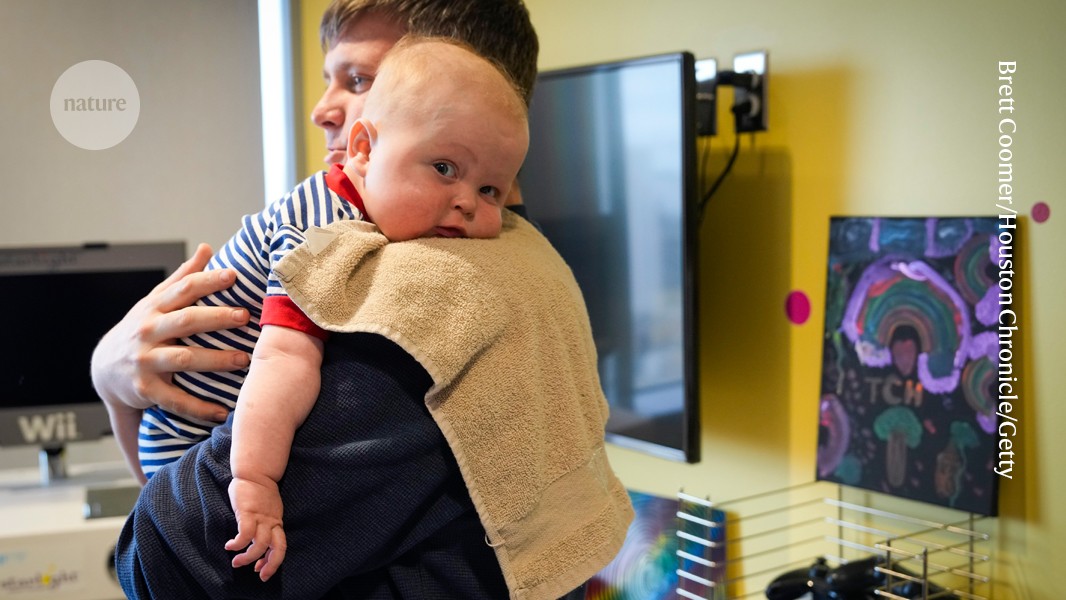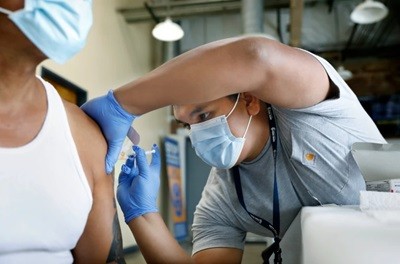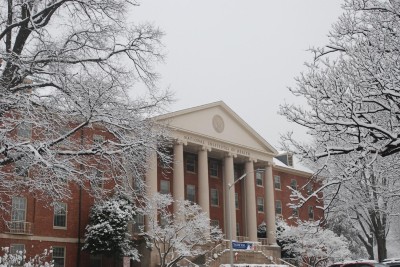
Children’s health could be under threat as a result of cuts to research funding.Credit: Brett Coomer/Houston Chronicle/Getty
Amid the hurly-burly of US health secretary Robert F. Kennedy Jr’s crusade to revolutionize the nation’s health agencies, one message rings clear: it’s all about the kids.
Kennedy has pledged that his Make America Healthy Again (MAHA) movement will focus on improving the health of the nation’s children. Last month, Kennedy’s MAHA Commission released the Make Our Children Healthy Again: Assessment report to guide federal efforts to tackle chronic disease among kids. “For Americans to be healthy, we must start when they are children,” Kennedy said in a statement to the US Senate on 14 May.
How paediatrician researchers are advancing child health
But many scientists who study paediatric health and disease fear that the US government’s push to reduce science spending jeopardizes that goal. Since Kennedy became head of the US Department of Health and Human Services (HHS) in February, the US National Institutes of Health (NIH) — which is part of the HHS — has axed more than 1,900 research grants, and US President Donald Trump has proposed cutting the NIH’s funding by about 40% for 2026.
“These cuts are catastrophic,” says Laura Anthony, a clinical and developmental psychologist at the Children’s Hospital of Colorado in Aurora, who spoke to Nature in her own capacity and not on behalf of her employers. “I worry that this is going to affect a whole generation, both of kids and scientists.”
A spokesperson for the Trump administration says grant terminations by the NIH have largely focused on wasteful spending projects. Last week, a federal judge told the NIH to reinstate many of the terminated grants and said that their cancellation was discriminatory and “bereft of reasoning.”
Mixed bag
A key goal of the MAHA movement is to address what its supporters consider to be the roots of chronic disease in the United States. This includes overconsumption of ultra-processed foods, and exposure to environmental factors such as industrial and agricultural chemicals, fluoride in drinking water and electromagnetic radiation. The MAHA report, released on 22 May, focused on the effect of these and other influences on children’s health, and called for more research in areas including nutrition, toxicology and drug safety.
MAHA’s spotlight on children’s health is welcome — especially its emphasis on diet and mental health, says Wendy Chung, a geneticist and chief of the department of paediatrics at Boston Children’s Hospital in Massachusetts. “This could be the decade of the kids, and that would be an amazing thing,” she says.
154 million lives and counting: 5 charts reveal the power of vaccines
But, she adds, the report also expressed scepticism about the safety of childhood vaccines known to protect children from numerous harmful diseases. The American Academy of Pediatrics has said that it welcomed the report’s focus on disease prevention and mental health, but that the report misrepresented the academy’s treatment guidelines for obesity. The MAHA report also cited several studies that do not exist. The White House press secretary attributed the fictitious references to “formatting issues”.
MAHA’s handling of scientific evidence has worried researchers. “It’s not a bad idea to make people healthy,” says Phyllis Dennery, chair of pediatrics at Brown University in Providence , Rhode Island. “The approach just has to be based in science.”
A spokesperson for the White House denied that it challenges the value of vaccination. “HHS remains committed to advancing children’s health through gold-standard science and evidence-based policy”, says an HHS spokesperson.
Kids’ research cancelled
The 1,900 or more grants cancelled since Kennedy took his position include some paediatric studies. “I don’t see any evidence of increased funding,” says Anthony. “Instead, it has been a drastic, tragic decrease.”
Some areas of paediatric research have been hit particularly hard. In January, Trump signed one executive order that officially recognized only two sexes, and another that banned US funding or support for some gender-affirming medical treatments for people under the age of 19. A Nature analysis in April found that nearly one-quarter of cancelled NIH grants at that time were related to the health of transgender people and members of other gender and sexual minority communities (LGBTQ+). “The medical interventions for gender dysphoria that the prior administration pushed are not backed by evidence,” a spokesman for the White House says.
Exclusive: NIH to terminate hundreds of active research grants
These funding cuts pose a particular problem for children’s health, says Dennery, given the growing number of adolescents who are seeking gender-affirming care in the United States, and the need for more data on how best to provide it. “It’s hard to understand the logic behind these research cuts,” says Dennery. “They may, in fact, make less information available in terms of guiding treatment.”
On 16 June, a federal court ordered the NIH to restore some terminated grants pertaining to LGBTQ+ people and Black people. Many of those grants were cancelled after Trump issued an executive order to end programmes for diversity, equity and inclusion. His administration could appeal against the court’s decision.





